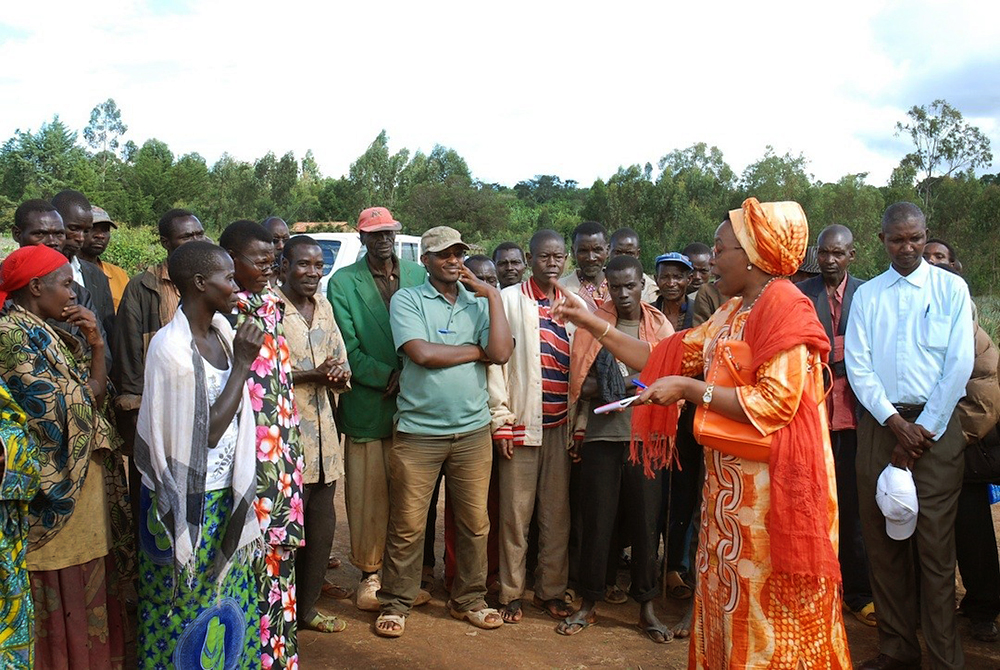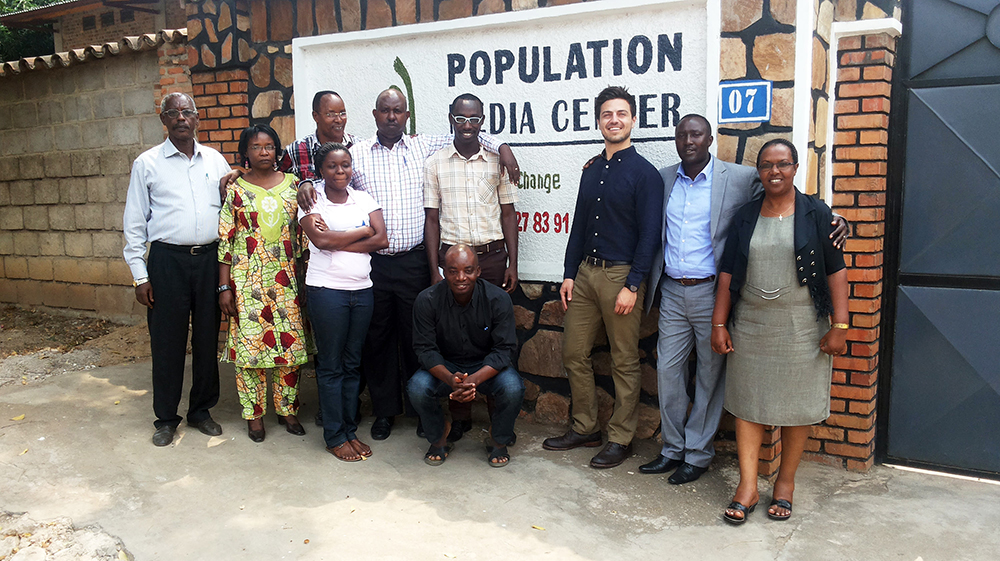BURLINGTON, VERMONT — By GDP per capita, among 193 United Nations members, Burundi is the second poorest country on the planet (1). It is small, about the size of Maryland or two-thirds the size of Switzerland. And it is landlocked, on the shores of Lake Tanganyika sharing borders with Rwanda, Tanzania, and the Democratic Republic of the Congo (DRC). Until two months ago, Burundi was a post-conflict state recovering impressively quickly from a 13-year civil war that ended 300,000 lives.
In the ten years since that civil war ended, Burundians have driven their country forward. Marguerite “Maggy” Barankitse saved thousands orphaned by conflict through a large non-profit focused on children, schools, hospitals, and community development. Ange Muyubira left her job in London as an account manager for Chanel, Prada, and Dior to found a social enterprise that gives Burundian artisans new skills, materials, and global market access. Dedo Ndayishimiye Baranshamaje founded a social impact incubator that provides Burundian non-profits with networking opportunities, business acumen, substantive guidance, and new funding streams.

2015 // © Maison Shalom
Rural farmers cultivate land with skills that they learned from ancestors or grassroots agriculture organizations. Taxi drivers use minutes between fares to chat about the latest FC Barcelona, Arsenal, and AC Milan matches. In conference rooms or on street corners, young Burundians lead political debates hours before they dance until sunrise. Their music? They get it on Facebook, YouTube, Soundcloud, and Spotify. It comes from Burundi, Nigeria, Rwanda, Angola, Belgium, the United States, Cuba, and the Dominican.
Burundi has come a long way since 2005. Today, Burundi is a hot mix of coffee, tea, journalism, food, textiles, work commutes, buses, farms, families, development, politics, dirt, culture, cell phones, cars, mopeds, fruit vendors, radio, art, fishing, music, nature, and progress. Two months ago, politics began suffocating that progress. Somehow, since early April, almost every passing week has found a way to get worse.
In two months, over 105,000 Burundians have fled to neighboring Rwanda, Tanzania, and the DRC, fearing violence associated with President Pierre Nkurunziza running for what is widely considered an unconstitutional third term (2). Public protest was banned the day that Burundi’s ruling party, CNDD-FDD, formally nominated President Nkurunziza for this summer’s elections. Police have since used live ammunition and grenades to quell protests. Wounded soldiers recovering from an unsuccessful coup were murdered in their hospital beds (3). An opposition party leader was shot dead near his home in Bujumbura (4). Over 4,400 cases of cholera have broken out among Burundian refugees in Tanzania (5). Whether more have been killed by disease or the Burundian government is unclear. What was initially a political crisis is now decidedly geopolitical and humanitarian.
As an American, I was prevented from returning to Burundi weeks ago. I lived and worked there before what was supposed to be a short visit home. To put this in perspective, the U.S. Embassy in Burundi evacuated all of its non-emergency staff; they were replaced by 20 heavily armed Marines (6). Other governments have taken similar precautions. Many of my friends—American, Burundian, and otherwise—have voluntarily evacuated, mostly to neighboring Rwanda. Global Health Corps made the safety of its fellows a priority and evacuated them accordingly. I, and others in similar circumstances, have been watching this tragedy unfold from afar. That has raised complex emotions like guilt, relief, gratitude, sadness, fear, and furious anger—emotions that, however difficult, pale in comparison to what Burundians are experiencing as their country slides backwards.
But life continues. People continue. And hope continues with them. Machine gun fire and grenade explosions are now not uncommon sounds in pockets of Bujumbura, especially at night. But during these past two months, my Burundian colleagues at PMC-Burundi have continued going to work when it is safe enough. Tharcisse Hicuburundi, our 60 year-old office cleaner, still walks three hours round-trip to work so that he can support his family of twelve. He takes detours around roadblocks of concrete, wood, burning tires, and twisted metal.

July 24, 2014. // © Population Media Center
Jean Bosco Ndayishimiye and François Abedi Ndondo, our Country Director and Producer, recently spearheaded a recording session for new episodes of our health education-focused radio drama, Agashi (“Hey! Look Again!”), during a two-day lull in hostilities. Our part-time voice actors came to work. Four of seven radio stations we broadcasted on three months ago are shut down. One of them was on fire recently. But the three stations still on-air are broadcasting new episodes of our show, on schedule, twice per week. We are still promoting gender equity, family planning, HIV prevention, and balanced child nutrition among the millions of Burundians who take a break from conflict when they listen to radio. That is remarkable.
Just ten years after war, and after making so much progress, Burundi and Burundians are experiencing inconceivable inhumanity every day. I cannot express how proud I am to know some of the individuals who are working to counterbalance that—beacons of humanity, warmth, and resolve who are doing their part to give their country a good future.
References
1. United Nations Statistics Division. National Accounts Main Aggregates Database. 2013. http://unstats.un.org/unsd/snaama/dnllist.asp.
2. The UN Refugee Agency (UNHCR). “UNHCR says more than 105,000 refugees have fled violence in Burundi.” 15 May 2015. http://www.unhcr.org/5555f62a6.html.
3. BBC News. “Burundi failed coup: Reprisal attack on rebel soldiers.” 16 May 2015. http://www.bbc.com/news/world-africa-32766915.
4. The Guardian. “Burundi opposition leader reportedly shot dead amid ongoing unrest.” 23 May 2015. http://www.theguardian.com/world/2015/may/23/burundi-opposition-leader-shot-dead-amid-ongoing-unrest.
5. The UN Refugee Agency (UNHCR). Tracks. “Rescue on Lake Tanganyika.” 26 May 2015. http://tracks.unhcr.org/2015/05/rescue-on-lake-tanganyika.
6. USA Today. “Marines sent to Burundi to guard U.S. embassy.” 19 May 2015. http://www.usatoday.com/story/news/world/2015/05/18/burundi-marines-embassy/27545791.
